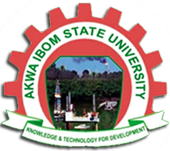Education-Related Artificial Intelligence and Its Effect on Academic Performance: A Study of Private Universities in Delta State
Abstract
The present study, which looked at private universities in the Delta state, explored the function professors will play in the era of artificial intelligence. Using a cross-sectional survey research approach, this study examined three (3) carefully chosen postsecondary institutions that make up the study’s accessible population. Two hundred and fifty-nine (259) questionnaires from the field survey were retrieved and examined; the demographic data of respondents was analyzed using descriptive statistics; the relationship between the dimensions of artificial intelligence and the role of lecturers in the future in the era of artificial intelligence was also examined using Spearman’s Rank Order Correlations Coefficient from SPSS version 20.00. and to test hypotheses postulated for the research between the predictor and criterion variables. Findings revealed that Artificial Intelligence through its indicators of adaptive learning, web-based technology and emotional artificial intelligence had weak relationship with the future role of lecturers in the teaching profession. Despite some participants’ beliefs that artificial intelligence would eventually replace teachers, it was concluded that human instructors are irreplaceable because they possess unique abilities like critical thinking, creativity, and emotion. It was also recommended that educational training environments be provided that enhance the role of artificial intelligence applications in lecturers’ professional development in order to maintain their relevance in the field.
